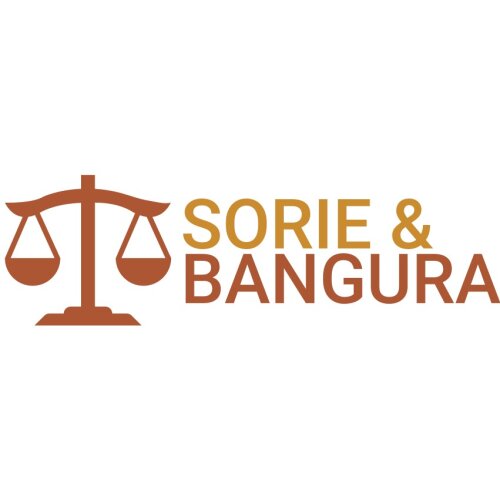Best Structured Finance Lawyers in Sierra Leone
Share your needs with us, get contacted by law firms.
Free. Takes 2 min.
Or refine your search by selecting a city:
List of the best lawyers in Sierra Leone
About Structured Finance Law in Sierra Leone
Structured finance refers to complex financial instruments and mechanisms that allow companies, governments, or project sponsors to raise capital, manage risk, and optimize financial resources. In Sierra Leone, structured finance plays an increasingly important role in supporting infrastructure development, mining, energy, and real estate projects. This field involves a range of legal issues, including the creation of special purpose vehicles (SPVs), securitization, syndicated loans, and tailored credit facilities. The legal framework surrounding structured finance ensures that such transactions comply with both local regulations and international standards, protecting investors, borrowers, and all participating entities.
Why You May Need a Lawyer
Structured finance transactions in Sierra Leone typically involve high-value, complex arrangements. You may need a lawyer if you are:
- Raising capital for a large-scale project through securitization or asset-backed lending.
- Setting up a special purpose vehicle (SPV) for risk isolation or project financing.
- Negotiating or entering into syndicated loan agreements.
- Ensuring compliance with local financial regulations, anti-money laundering laws, and international best practices.
- Restructuring existing debt or seeking innovative solutions to financing challenges.
- Resolving disputes that arise from structured finance agreements.
- Advising on cross-border financial transactions, including currency and tax considerations.
Local Laws Overview
Structured finance in Sierra Leone is primarily governed by a mix of domestic legislation, regulatory guidelines, and international norms. Key aspects include:
- The Companies Act 2009 - Governs the formation and operation of corporate entities and SPVs commonly used in structured finance.
- The Banking Act 2019 - Oversees the activities of financial institutions, including restrictions and requirements for lending, securitization, and risk management.
- The Financial Services Act - Regulates non-bank financial activities, including asset management and investment funds.
- Central Bank of Sierra Leone Regulations - Enforces guidelines on capital adequacy, anti-money laundering (AML), and know your customer (KYC) measures.
- Security Interests in Movable Property Act 2020 - Simplifies collateral registration, critical for asset-backed financing.
- Contract Law and the Law of Evidence - Establish standards for the validity and enforceability of finance agreements.
Frequently Asked Questions
What is structured finance and how is it used in Sierra Leone?
Structured finance refers to customized financial solutions often used for large projects or investment needs. In Sierra Leone, it is mainly used for infrastructure, mining, energy, and real estate financing.
What are special purpose vehicles (SPVs) and why are they relevant?
SPVs are separate legal entities created to isolate financial risk and facilitate structured transactions. They are commonly used in project finance and securitization in Sierra Leone.
Do international investors face restrictions in Sierra Leone's structured finance sector?
International investors are generally welcome but must comply with local laws, currency regulations, and sometimes obtain approvals from the Central Bank of Sierra Leone.
Is securitization legal in Sierra Leone?
Securitization is not explicitly regulated but can be structured within the existing legal framework, provided all applicable company, financial, and securities laws are observed.
What are some common risks in structured finance transactions?
Risks include counterparty default, regulatory changes, unforeseen tax consequences, political instability, and fluctuating market conditions.
Can assets be used as collateral for structured finance deals?
Yes. The Security Interests in Movable Property Act 2020 makes it easier to register and enforce security interests over movable assets, which are often used as collateral.
Are there specific taxes applicable to structured finance transactions?
Structured finance transactions may attract stamp duties, withholding taxes, and other charges. Tax structuring with legal advice is crucial to optimize costs.
How are syndicated loans structured in Sierra Leone?
Syndicated loans involve multiple lenders sharing credit risk and funding. These arrangements are governed by customized agreements that comply with local contract and banking laws.
What legal challenges arise in cross-border structured finance deals?
Common challenges include enforcement of foreign judgments, currency controls, differing regulatory practices, and achieving legal certainty with local authorities.
How can I find a lawyer specializing in structured finance?
Seek recommendations from local law societies, the Sierra Leone Bar Association, or reputable law firms with experience in financial and commercial law.
Additional Resources
If you require further information or support, consider contacting or consulting:
- Central Bank of Sierra Leone - Regulatory oversight for financial transactions and currency issues.
- Sierra Leone Ministry of Finance - Policy guidelines on investment and capital markets.
- Sierra Leone Bar Association - Lawyer directory and legal profession regulations.
- Corporate Affairs Commission - Company registration, compliance, and SPV formation.
- Banking institutions and reputable law firms specializing in finance law.
- International development agencies (e.g. World Bank, IFC) for guidance on structured finance in emerging markets.
Next Steps
If you are considering or involved in a structured finance transaction in Sierra Leone, start by clearly defining your objectives and gathering relevant documentation. Next, identify and consult with a lawyer experienced in finance law and structured products. Your legal advisor can:
- Assess the risks and benefits of proposed transactions.
- Ensure compliance with all applicable laws and regulations.
- Assist in negotiation and drafting of necessary agreements.
- Provide guidance on tax and cross-border structuring issues.
- Offer support in dispute resolution if disagreements arise.
Lawzana helps you find the best lawyers and law firms in Sierra Leone through a curated and pre-screened list of qualified legal professionals. Our platform offers rankings and detailed profiles of attorneys and law firms, allowing you to compare based on practice areas, including Structured Finance, experience, and client feedback.
Each profile includes a description of the firm's areas of practice, client reviews, team members and partners, year of establishment, spoken languages, office locations, contact information, social media presence, and any published articles or resources. Most firms on our platform speak English and are experienced in both local and international legal matters.
Get a quote from top-rated law firms in Sierra Leone — quickly, securely, and without unnecessary hassle.
Disclaimer:
The information provided on this page is for general informational purposes only and does not constitute legal advice. While we strive to ensure the accuracy and relevance of the content, legal information may change over time, and interpretations of the law can vary. You should always consult with a qualified legal professional for advice specific to your situation.
We disclaim all liability for actions taken or not taken based on the content of this page. If you believe any information is incorrect or outdated, please contact us, and we will review and update it where appropriate.
Browse structured finance law firms by city in Sierra Leone
Refine your search by selecting a city.












